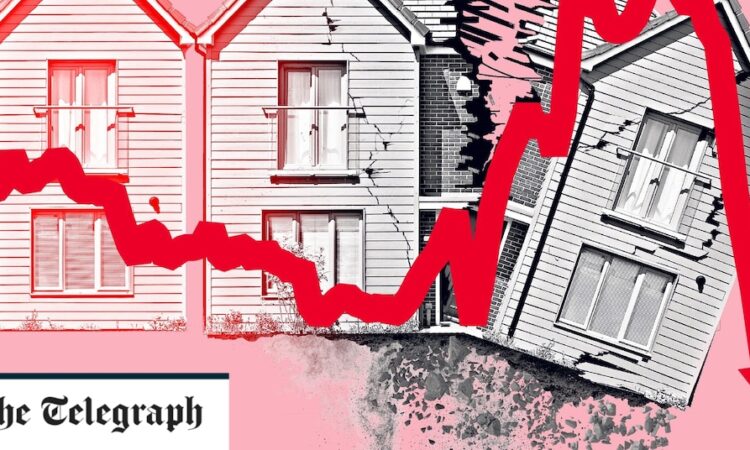
Inflation will make it much harder for policymakers to step in and alleviate the strain on the housing market if values do fall dramatically.
After the global financial crisis, the Bank of England slashed interest rates. Back then, there was no inflationary pressure. “That meant that the fall in house prices that occurred then was relatively small and temporary,” says Muellbauer.
With inflation so high today, this is not an option on the table for the Bank. This downturn has more similarities with that of the early Nineties, when the Bank had a similar inability to lower rates, says Muellbauer.
Back then, the downturn was less sharp than in 2008, but it was far more protracted. House prices fell for years.
Even if these specific risks are averted, the British housing market must adjust to a painful new reality.
When mortgage rates hit 6pc, buyers saw their buying power reduced by 35pc compared to the start of 2022, according to calculations by Zoopla. Today, it is possible to get a mortgage at a little over 4pc. That means buyers have 20pc less to spend than at the start of last year, says Richard Donnell, executive director of research at Zoopla. And that is with the best deal on the market. The average two-year fixed rate is more than 5pc.
Cheaper to rent than buy
Robert Lewis, 36, is also buying a home in London with his partner and two children. Since they began their house hunt a year ago, the mortgage rate they can get has doubled. As a result, they have shifted their house hunt to a cheaper area.
But even this will not offset the blow. “When we first started looking, one of the main drivers was to save money compared to our rent. Now, whatever we do, we will be spending more on our mortgage than we do on rent,” says Lewis.
The family’s monthly rent is £3,500. Their mortgage bill will be £3,800, roughly £1,000 more than when they started house hunting. “That means a different lifestyle to the one that we are going to have, a lifestyle where you’ve got to worry about the bills,” says Lewis.
The property market is recovering from the mini-Budget, but it is adjusting to a new reality of permanently higher interest rates.
In October 2022, as mortgage rates soared following Kwasi Kwarteng’s fiscal statement, agreed sales slumped by a third compared to pre-pandemic levels, according to TwentyCi. Rates have since cooled and sales have recovered. In March, they were up by 1.4pc on the 2017-2019 period.
But these deals are entirely price dependent. Back in October, the share of sales that were agreed after price changes was up only 2.5pc compared to the pre-Covid norm. In March, the share was up 44pc.






